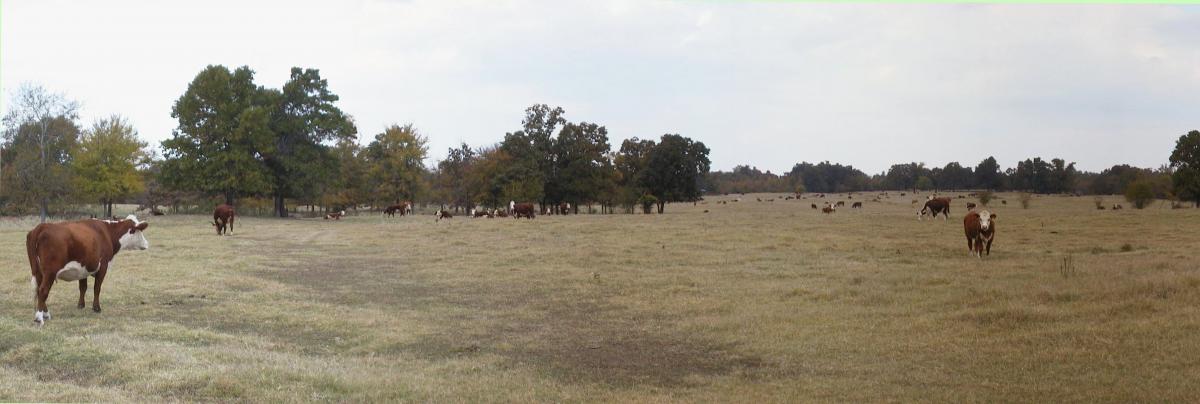Food Perspectives

This is another arena where the news confuses rather than educates. Or commentary attempts to expose how various organizations continue to steer the consumer into following the same old habits he has always followed. If we are going to change the way Americans eat, that doesn't mean we just rearrange the chairs on the deck of the Titanic. We have got to literally change the foods we eat. It's impossible to expect something to be different if we continue to do what we've always done.
Everyone has a different idea of what is and is not food. They never stop to think that for all of time fruit was highly seasonal. The same for nuts. They do not understand that modern fruit is far and away sweeter than the old fruits prior to man's invention of farming and plant and animal breeding. They have no idea that the only food for man and beasts that was around 365 days a year was either green leafy plants and animals. (Yes, grasses can even grow under the snow or are "preserved" under the snow and ice.)
Plant Based Diet Has Many Flaws
 Dr. Keith Roach, in his daily columnto a heart disease victim, recommended “a diet based mostly on plants, with the option of adding whole grains, fish, nuts, fruits and lean meat sources such as skinless chicken.” He did emphasize low sugar foods but then said “commercial red meat” should be limited to no more than two servings per week. He concluded that “this diet is likely to reduce risk of further events.”
For going on 55 years the science-based drum role for a proper diet has centered around several factors. A. Total Nutrients. B. Low Glycemic. .
Dr. Keith Roach, in his daily columnto a heart disease victim, recommended “a diet based mostly on plants, with the option of adding whole grains, fish, nuts, fruits and lean meat sources such as skinless chicken.” He did emphasize low sugar foods but then said “commercial red meat” should be limited to no more than two servings per week. He concluded that “this diet is likely to reduce risk of further events.”
For going on 55 years the science-based drum role for a proper diet has centered around several factors. A. Total Nutrients. B. Low Glycemic. . Paleo Diet Gets “Worst Diet” Ranking by U.S. News
 It’s official, the Paleo Diet was dead on arrival in the U.S. News and World Report ( USNWR) February 2015 article ranking the popular diets. The magazine summed it up this way: The Paleo diet came out at or near the bottom in every category, and tied with the Dukan diet as dead last overall. Ratings above a 2 were rare; the experts were especially critical of its nutritional completeness, cost and its applicability for weight loss and for preventing or controlling diabetes and heart disease. Most seemed to agree with one panelist's summing up: "This diet should go bak where it came from.
It’s official, the Paleo Diet was dead on arrival in the U.S. News and World Report ( USNWR) February 2015 article ranking the popular diets. The magazine summed it up this way: The Paleo diet came out at or near the bottom in every category, and tied with the Dukan diet as dead last overall. Ratings above a 2 were rare; the experts were especially critical of its nutritional completeness, cost and its applicability for weight loss and for preventing or controlling diabetes and heart disease. Most seemed to agree with one panelist's summing up: "This diet should go bak where it came from. Organic and Nutrition
 The word "organic" does not always mean "nutritional superiority." Yes, there are times when organic fruits and vegetables are more nutritious than conventionally raised fruits and vegetables. But we must be fair here. In many cases the opposite is also true!
In food safety terms, "organic" never means safer food. That's because nearly all food borne illnesses have organic origins! Organic origins are bacteria, viruses, molds, and fungi for starters. On top of those major food safety problems there is the mineral and chemical imbalances that can come naturaly in nature.
The word "organic" does not always mean "nutritional superiority." Yes, there are times when organic fruits and vegetables are more nutritious than conventionally raised fruits and vegetables. But we must be fair here. In many cases the opposite is also true!
In food safety terms, "organic" never means safer food. That's because nearly all food borne illnesses have organic origins! Organic origins are bacteria, viruses, molds, and fungi for starters. On top of those major food safety problems there is the mineral and chemical imbalances that can come naturaly in nature. Why Organic Food May Not Be Healthier For You
 Amazingly, and in spite of an outpouring of protests from its audience, National Public Radio has reported the results of a major Stanford University study that debunks Organic Myths. A link to the actual study reveals this important note . . . . Primary Funding Source: None. I’ve been pounding the table for years about the organic myth. For one instance, how can organic corn be better than conventionally grown corn? I encourage you to read the NPR report. It is a good story, yet it still does not mention that the greatest toxic threats in our foods come from 100% natural oganic sources.
Amazingly, and in spite of an outpouring of protests from its audience, National Public Radio has reported the results of a major Stanford University study that debunks Organic Myths. A link to the actual study reveals this important note . . . . Primary Funding Source: None. I’ve been pounding the table for years about the organic myth. For one instance, how can organic corn be better than conventionally grown corn? I encourage you to read the NPR report. It is a good story, yet it still does not mention that the greatest toxic threats in our foods come from 100% natural oganic sources. CNN can’t get it right either . . .
 Today CNN posted an article tilted “The grass-fed vs. grain-fed beef debate.” The article was written in consumer friendly mumbo jumbo and probably has as much misinformation as it does good information. For instance CNN’s cooking suggestions ranged from doing it correctly to totally destroying a meat cut. It cooked roasts low and slow and steaks quickly. As we all know, grass-fed steaks must be cooked low and slow too and anything past medium rare for a grass-fed steak is over cooked. For an absolute fact CNN’s nutritional message for grass-fed meats was lost by mixig comments from knowledgeable people with those of idiots with professional degrees.
Today CNN posted an article tilted “The grass-fed vs. grain-fed beef debate.” The article was written in consumer friendly mumbo jumbo and probably has as much misinformation as it does good information. For instance CNN’s cooking suggestions ranged from doing it correctly to totally destroying a meat cut. It cooked roasts low and slow and steaks quickly. As we all know, grass-fed steaks must be cooked low and slow too and anything past medium rare for a grass-fed steak is over cooked. For an absolute fact CNN’s nutritional message for grass-fed meats was lost by mixig comments from knowledgeable people with those of idiots with professional degrees. 



